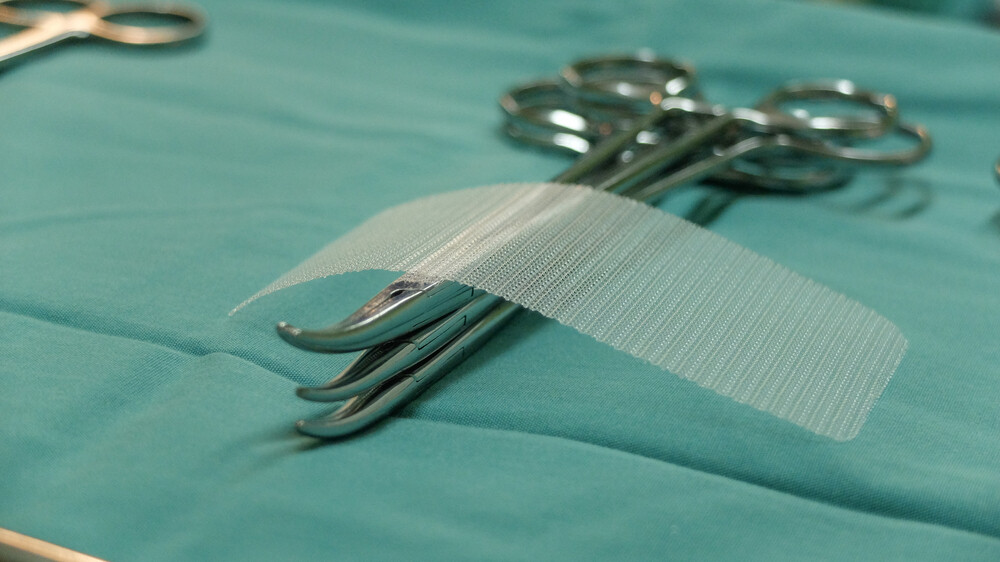Information Regarding Surgical Mesh and Why You Need to Know
Author: Auger Law | March 23rd, 2018
 Maybe your doctor has diagnosed you with pelvic organ prolapse, or POP. Perhaps you have a bladder prolapse. Or maybe you have a hernia and your doctor is recommending surgical repair. Before you go under the knife for a mesh implant, there are things you need to know.
Maybe your doctor has diagnosed you with pelvic organ prolapse, or POP. Perhaps you have a bladder prolapse. Or maybe you have a hernia and your doctor is recommending surgical repair. Before you go under the knife for a mesh implant, there are things you need to know.
While many people have undergone these procedures without incident, others have been left with devastating injuries. Surgical mesh is not something to have implanted without doing your due diligence. Here is some info that may help you make a well informed decision regarding surgical mesh.
- FDA warnings
The FDA issued warnings to doctors and the general public in 2008 and again in 2011. Many of the warnings are associated with POP procedures that utilized mesh, but also included surgeries for stress urinary incontinence that also used mesh.
It’s important to know that the FDA does not issue warnings lightly and according to the government agency, complications are not rare and can be serious.
- If you’ve been injured…
.Many people have a misconception that mesh products involved in current lawsuits are no longer on the market. This is not the case. Many of the mesh devices at the center of litigation are still being used.
If you have been told you need a mesh implant and your doctor has told you that they use “the other kind,” ask specifically what type will be used and do your own research.
- Complications
Complications resulting from mesh implants can occur in as high as 36 percent of the patients that undergo a procedure that requires mesh implantation. There is debate on the accuracy of that figure depending on who you ask. What is not in doubt is the significant number of people that have claimed to have been injured because of mesh. There are more than 100,000 lawsuits that have been filed due to complications from mesh implants.
- Permanently implanted mesh
Some mesh implants are meant to be permanent. If you were implanted with mesh meant for permanent implantation and have complications, you may have limited treatment options. A general explanation is that in some cases, implanting mesh can be a lot easier than trying to remove it
- Complications
Complications from mesh implants can be very severe and difficult to correct.
Complications from mesh implantation can include infections and in some cases, the patient’s body may reject the mesh, requiring its removal. In other cases the mesh can fail, requiring a revision surgery. In some very serious cases, the mesh can become adhered to the patient’s internal tissue. The FDA has warned that having a mesh implant can potentially cause complications with some other types of surgeries you may need in the future.
- It can harden
When you are shown a mesh implant, you may see something that is flexible and gauze-like. That can be deceiving when in some cases; the mesh implant may harden over time. Mesh made from materials such as polypropylene are an example of this. If hardened, the mesh may erode through tissue causing severe damage to internal organs.
- The more you know
Like with any surgery, a patient undergoing a procedure that may use mesh should be fully informed. If your doctor is suggesting a mesh implant, find out as much information as you can on the mesh product. Ask if there are alternatives. If possible, get a second opinion before you commit to the surgery. Having as much info as possible will help you make the best decisions.
- Just because it’s on the market….
Unfortunately we cannot realistically expect every medical product that comes to market to be safe. FDA approval does not mean that a product cannot cause harm. Calls for changes in the laws required for evaluating drugs and medical devices may have fallen on deaf ears. Until an overhaul in the system occurs, patients should also rely on their own research before making a decision to use mesh or any other medical device or drug.
Having a surgical mesh implanted into your body is not something to do without a fair amount of research. Doctors continue to use mesh, and unfortunately patients may continue to experience complications..
If your doctor is suggesting that you have a surgical mesh implant, do not consent to the surgery until you have done your research. If you have received a hernia mesh implant and are experiencing complications, we are here for you. Reach out to our team of experienced Charlotte defective medical devices lawyers for information on how we may be able to help.














